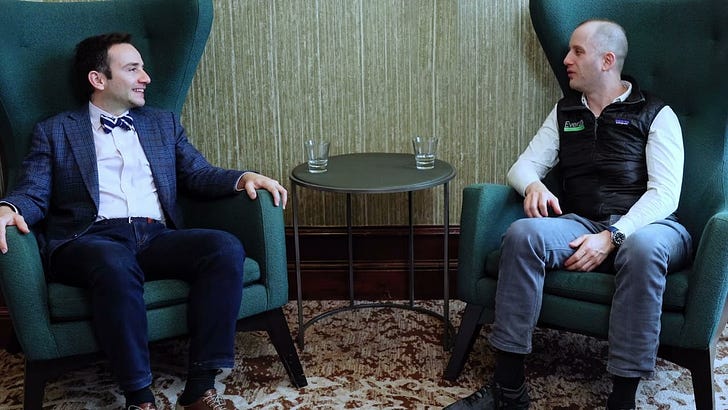Evertas: Building the Insurance Backbone of Crypto
Launching an insurance company is tough. Launching one focused primarily on digital assets? That’s a level of difficulty few founders would touch. Yet, J. Gdanski did exactly that when he founded Evertas in 2017. Today, Evertas has scaled to tens of millions in annual premiums and secured capacity at Lloyd’s of London—becoming the first dedicated crypto insurer. In this interview, J. explains how he discovered the insurance gap crippling institutional adoption of crypto, and shares hard-won lessons on building a niche startup in a highly regulated industry.
From Early Blockchain Endeavors to the Insurance Gap
J’s crypto journey began in 2015 while working at major banks on emerging “enterprise blockchain” initiatives like R3 and the Enterprise Ethereum Alliance. During that time, he noticed a three-pronged requirement for large-scale institutional custody:
Custody tech (wallets, key management)
Legal/regulatory frameworks
Insurance coverage for digital assets
That last piece—insurance—didn’t exist in any meaningful form. Institutions needed coverage, but Lloyd’s underwriters were wary, citing the novelty and technical complexity of crypto. So in 2017, J teamed with co-founder Raymond Zenkich (who had both McKinsey and Accenture experience) to start Evertas. Their mission: become the go-to insurance provider for all things crypto.
Building a Company Under Insane Constraints
From the get-go, Evertas faced massive challenges:
Highly Regulated, Slow-Moving Market: J. jokes, “Never start an insurance company.” It took two years of patient relationship-building, risk modeling, and constant education for Evertas to convince large underwriters in London to back a crypto policy.
Technical Depth: Evertas had to define (and legally codify) terms like “hot,” “warm,” and “cold” wallets—since existing policies used them colloquially but never clearly.
Lean Team, Deep Expertise: Rather than hiring a big staff, Evertas invested in “absolute experts” across cybersecurity, blockchain, and underwriting. For years, Evertas stayed under 5 employees. Only once they secured major capacity at Lloyd’s did they scale to ~15 people.
Despite these hurdles, Evertas eventually became a Lloyd’s coverholder (allowing it to write policies directly) and expanded its policy size from $5 million to $400 million within a single year.
Hard-Earned Lessons for Founders
Know When to Kill Your Idea
J. learned early to avoid “sunk cost” traps: “Wake up every day and ask if you should kill the company. Time is the one resource you can’t get back.”Hire Slowly, Fire Fairly
Employees are your biggest cost—and your biggest potential driver of success. Be meticulous in hiring and don’t hesitate to part ways if the fit isn’t right. “Always treat people humanely with notice, severance, and respect,” J. says.Focus on Revenue, Not Vanity
Evertas refused to scale prematurely. They were laser-focused on proving their underwriting model to Lloyd’s. That meant few marketing dollars and no fancy “swag.” But once they landed capacity, premium revenue soared 30x in a year.Cultivate the Right Partnerships
Securing buy-in from major industry players takes time. “Make sure you’re talking to actual decision-makers,” J. advises. Corporate politics and internal misalignments can waste months (or years) if you’re stuck with the wrong champion.
The Road Ahead: A Crypto Insurance Giant
Now profitable (or nearly so) and well-capitalized, Evertas is ready to expand:
Bigger PolicySizes & New Products: They aim to handle even larger policies for custody, hot wallets, and eventually multi-chain or DeFi setups.
Cyber Coverage & DAO Solutions: J. sees huge gaps in specialized coverage for DAOs, smart contracts, slashing risks, and more. Evertas is exploring how to structure these next-gen policies.
Boring, though it may sound, Evertas’s “insurance-first” approach could unlock major institutional participation in crypto. When a custodian or exchange can point to robust coverage at scale, regulators and enterprise customers breathe easier. It’s the type of behind-the-scenes infrastructure that every disruptive sector eventually needs—but few founders take on.
“Boring businesses can make big money,” J says with a grin. “And they can also support truly innovative ones. We’re proving that every day.”
Look forward to what the future holds for Evertas, let me know if you’d like to be connected with them!



